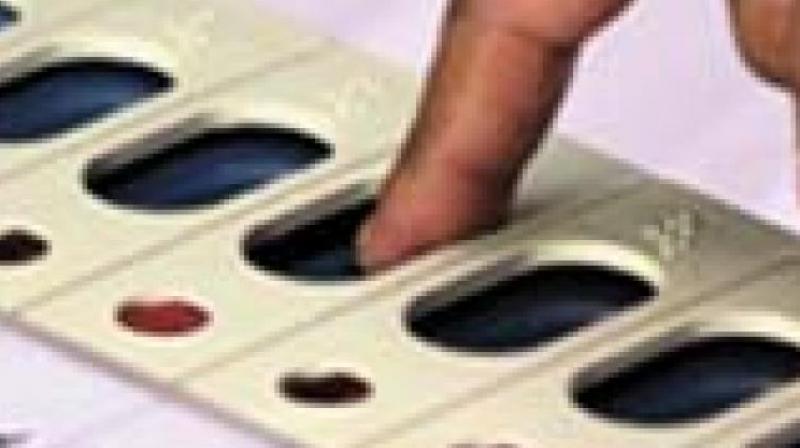Little for TN from Karnataka results
There is no reliable data either from the only by-election in which the open play of money power decided the outcome.

They got a toehold in south India ten years ago. Just short of a majority, they had to scramble to cobble it with the help of independents. They were riding a sympathy wave then after the JD(S) had reneged on a power sharing agreement.
The wheel has come full circle in a decade and the BJP is again looking for power outright in any state south of the Vindhyas, besides Maharashtra and Goa in India’s west. Will they get it is a Million Dollar question and one doesn’t have to wait long for the answer, which will be in sometime tomorrow.
India’s pride may be in its diversity and nothing could politically be more diverse than the north and south of the land. We may have to delve into ancient Indo-Aryan history of significant migration into India from Central Asian steppes between 2000 and 1500 BCE to understand how the differences may have come about. The BJP ideologues may have a problem accepting such migration took place at that time in history. Whatever happened between then and now, it is fact that a modern version of a Dravidian south is distinct from the ‘Aryan’ north, if indeed you wish to call it that.
The truth is south is a conundrum for what is essentially a north and west Indian party. The 2008-2013 regime, largely spoiled by the hit to the image by the Yeddyurappa graft scandal, was again in keeping with Karnataka’s famous propensity to go against the national trend in electing legislators to the handsome edifice of the Vidhana Soudha in the heart of Bangalore’s Cubbon Park. New Delhi and Bangalore have regularly been polar opposites since Ramakrishna Hegde’s Janata Party regime began in 1983. Bucking the national trend had somehow become the norm in a state that had also served as the gateway to the south for a budding national party, but only through of the leadership of rebel Congressmen under Nijalingappa.
The bigger stumbling block now in its southern push under a ‘refurbished’ Yeddy is the perception of the BJP in southern parts as the party with a Hindutva ideology that is ruling in large parts of India. The negative perceptions may stem from issues that any large ruling party may face.
Even so, the BJP has to additionally battle a more sharply delineated north-south divide as well as its image dip as the national ruling party in aspirational India seeking more than the “roti, kapda and makan” of older socialistic times. This was before the economic reforms of the 1990s brought India nearer a globalised world along with its hedonistic profligacy.
Karnataka is the only state in which the Janata Party and its successor BJP have been in power. In any conceivable scenario, it’s the only state in which the party can even hope to come to power on its own. It may have about 10 per cent share of the vote in AP but its alliance there with Chandrababu Naidu is history. Kerala, in its alternating Left or Congress alliances, might be the last frontier. That leaves Tamil Nadu as a state on the BJP’s list of hope even if its plans for the state read like five-year or 10-year plans predicated upon a vacillating Rajinikanth entering politics and getting into an alliance with the BJP and ruling AIADMK and finally helping Nirmala Sitharaman become the occupant of Fort St George for a BJP-led coalition.
With an assembly poll far away even in a state where the majority of the ruling party is not totally clear, any scenario promoted by BJP ideologues can only be very long term. Any assumptions on the popular choice are also subject to inaccuracies under the impact of shifting political winds in the post-Jayalalithaa era.
There is no reliable data either from the only by-election in which the open play of money power decided the outcome. There is no knowing how a whole state will vote when it comes to an election, with alliances possible prior to as well as post-poll further eroding any accuracy in the business of predictions.
Tamil Nadu will remain an electoral conundrum until we get to a poll. Even the local body polls may serve as a pointer but there is no knowing when they will be held.
The Dravidian state in which a kind of duopoly has existed and in which national parties have to ride piggyback on either of two Dravidian majors has been sort of unique in its voting patterns.
What happens in Karnataka may have little effect since none of the three big parties in contention there can imagine making any impact here. In that sense at least, TN is a neutral observer.
The two states may be united and divided at the same time by the Cauvery and there is no telling which of the national
parties would risk giving a fair share of the Cauvery without stirring up the Mandya farmers. So there is no particular reason for any wishful thinking in Tamil Nadu about the Karnataka poll outcome. Anyone in power in Bengaluru would be equally reluctant to share the bounty of the Cauvery. More of that later as an eventful week is ahead in Karnataka, the source of the Cauvery.
(R. Mohan is the Resident Editor of the Chennai and Tamil Nadu editions of Deccan Chronicle)

